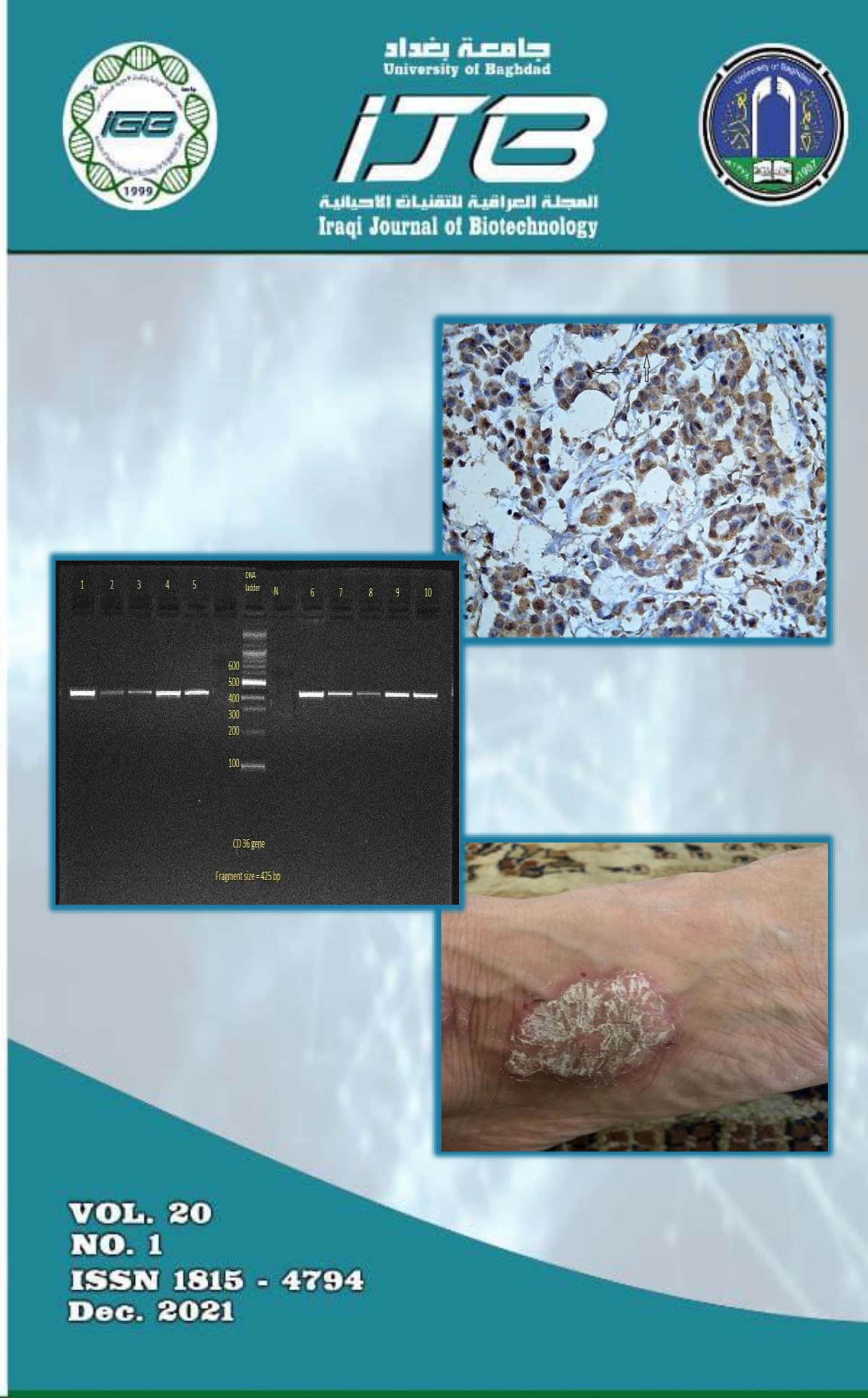Evaluation of IL-17, IL-18 and IL-22 as Vital indicators of Iraqi Patients with Psoriasis
Abstract
Psoriasis is a chronic inflammatory disease characterized by a number of immune response abnormalities. Cytokines are small, biologically active proteins that regulate cell growth, function, and differentiation and aid in the direction of the immune response and inflammation in psoriasis. This study was conducted to evaluate serum IL-17A, IL-18, and IL-22, levels by the enzyme-linked immunosorbent assay (ELISA) for detection the importance and effects these cytokines in psoriasis. Seventy-five patients with psoriasis (38 females and 37 males) were recruited from the Al Kindi General Teaching Hospital during the period between the 1st of December 2019 until December 2020, with mean age (35.30 ±8.64) years old, and 75 apparently healthy volunteers (40 females and 35 males), with mean age (33.40 ±6.25) years old, with no symptoms or history of psoriasis or other allergic or skin disorders (control group), In this study 3 ml sera samples from each individual of both groups were collected. The results demonstrated significant elevation of Serum IL-17A, IL-18, and IL-22 in the patient's group compared to healthy controls (P≤0.01) in patients with psoriasis compared to healthy control. These data support the view that serum IL-17A, IL-18, and IL-22 are involved in the pathogenesis of psoriasis, possibly by induction and maintenance of psoriatic lesions. It recommends the use of cytokine (IL-17A, IL-18, and IL-22) as a useful follow-up marker for monitoring psoriatic patients and optimizing therapeutic strategies.


